Are you dreaming of a furry companion but dread the thought of constant vacuuming and lint rolling? You’re in luck! There are plenty of adorable small dog breeds that don’t shed (or shed very little), allowing you to enjoy all the cuddles without the hairy mess. Let’s explore some of the best small dogs to own that don t shed:
Affenpinscher
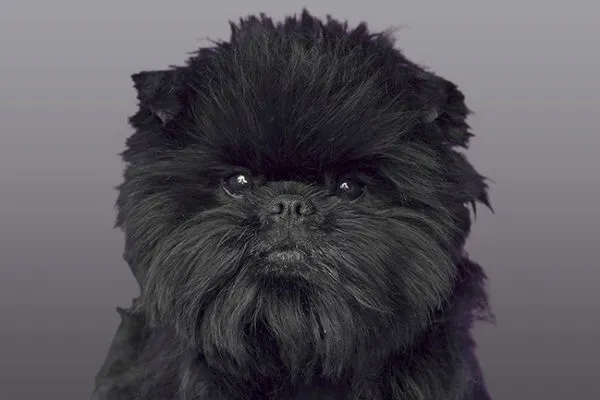 Affenpinscher looking alert with a dark, wiry coat
Affenpinscher looking alert with a dark, wiry coat
The Affenpinscher, whose name means “monkey-like terrier,” is an intelligent and lively breed. Despite their small size, they are fearless and make excellent watchdogs. Their wiry coat sheds very little and has almost no doggy odor. A twice-weekly brushing is all that’s needed to keep them looking their best. This breed is also known for its charming and humorous personality.
Basenji
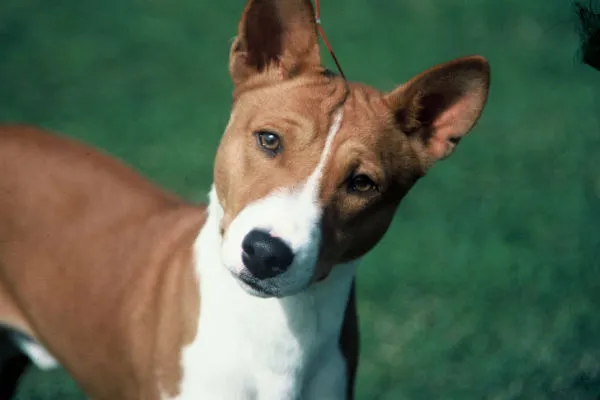 Basenji with a short, red and white coat standing alert
Basenji with a short, red and white coat standing alert
If you love hounds but dislike their shedding habits and distinctive odor, the Basenji might be the perfect fit. This breed sheds very minimally, and its short, fine coat requires little more than occasional brushing. Basenjis are also known for being quiet, making them great apartment dogs, provided they get enough exercise and playtime. They are also known for their independence, so early training and socialization are important.
Bichon Frise
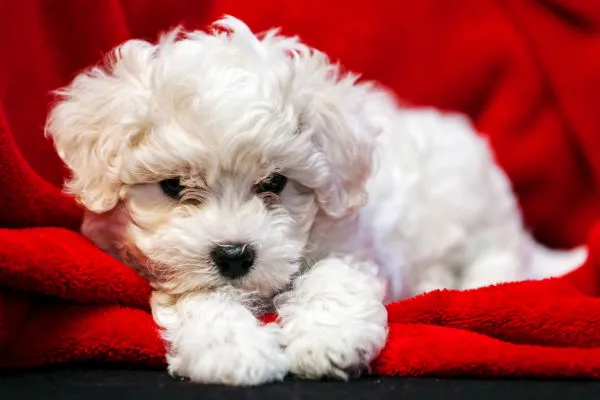 Bichon Frise with a fluffy, white coat looking directly at the camera
Bichon Frise with a fluffy, white coat looking directly at the camera
The Bichon Frise is a truly non-shedding small dog breed. These playful and affectionate dogs are often recommended as an ideal dog breed for people with allergies. However, their beautiful white coat requires regular grooming, brushing, and bathing to keep them looking their best. Neglecting their grooming can lead to mats and skin issues.
Bolognese
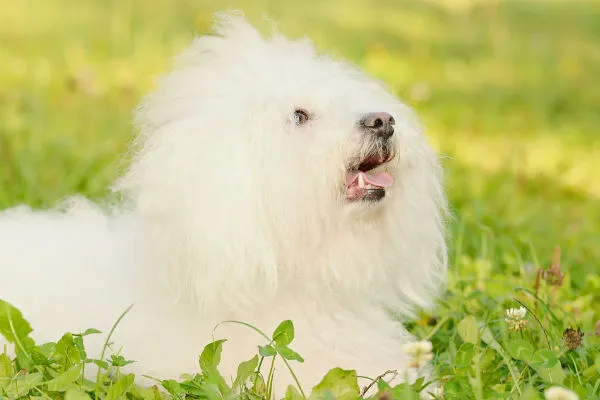 Bolognese with a fluffy, white coat sitting and looking attentively
Bolognese with a fluffy, white coat sitting and looking attentively
Similar to the Bichon Frise, the Bolognese has a fluffy coat composed of hair rather than fur. This means they don’t shed, but they do require regular brushing to remove dead hair and prevent mats. Daily grooming is recommended to keep these lovable lap dogs looking their best. The Bolognese is known for being calm, intelligent, and devoted to their families.
Brussels Griffon
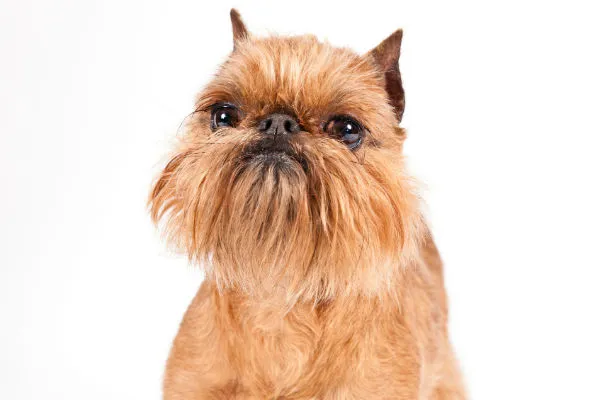 Brussels Griffon with a rough, reddish-brown coat looking directly at the camera
Brussels Griffon with a rough, reddish-brown coat looking directly at the camera
Despite their small size, Brussels Griffons don’t need constant pampering. Both smooth-coated and rough-coated varieties thrive with regular grooming and shed minimally. Their small size means a daily walk and indoor play are usually enough to satisfy their exercise needs. These loyal little dogs do best with families who are frequently home, as they can suffer from separation anxiety. This breed makes a cute small dogs that don t shed.
Chinese Crested
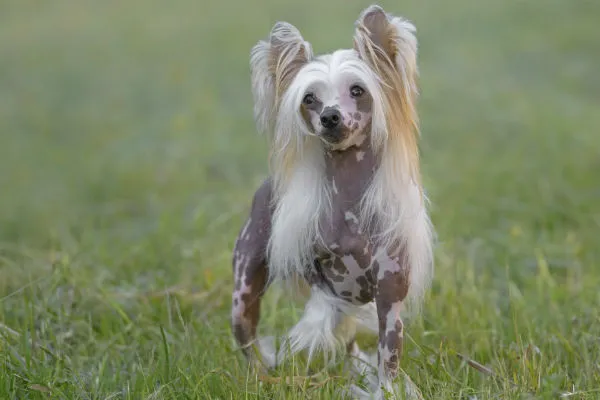 Chinese Crested (hairless variety) with hair on its head, tail, and feet
Chinese Crested (hairless variety) with hair on its head, tail, and feet
One sure way to avoid shedding is to choose a hairless dog breed! Chinese Cresteds come in two coat types: hairless and powderpuff. Hairless Chinese Cresteds have hair only on their heads, tails, and feet, while the powderpuff variety is covered with a coat of fine hair that sheds very minimally. Hairless breeds need extra skin care, including protection from the sun and cold.
Coton de Tulear
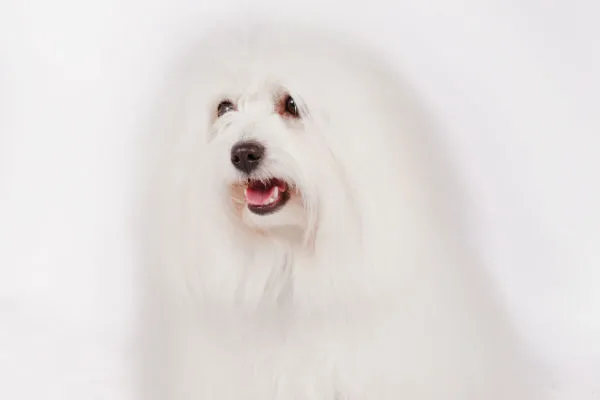 Coton de Tulear with a long, fluffy, white coat standing in grass
Coton de Tulear with a long, fluffy, white coat standing in grass
The Coton de Tulear has a distinctive, long, fluffy coat that is considered hypoallergenic, making it a good choice for allergy sufferers. They do require daily grooming to maintain their coats, but their lighthearted and gentle natures make the effort worthwhile. These dogs are known for being adaptable and loving, making them great family pets.
Havanese
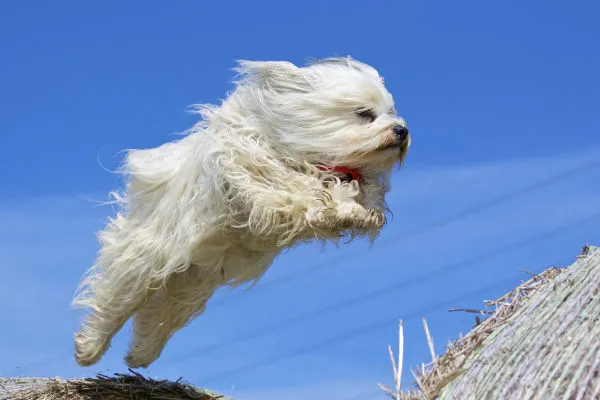 Havanese with a long, silky, multi-colored coat looking to the side
Havanese with a long, silky, multi-colored coat looking to the side
These native Cuban dogs offer owners both their spunky charm and a coat that doesn’t shed, which means less time spent cleaning and more time playing. Their coat requires weekly brushing and regular baths to keep them clean and healthy. The Havanese is intelligent and easily trained, thriving on human interaction.
Maltese
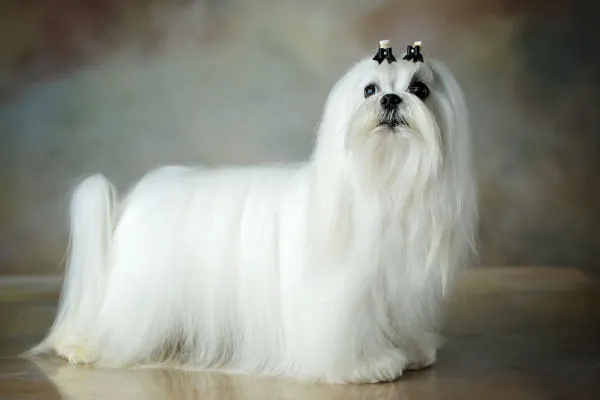 Maltese with a long, flowing, white coat sitting and looking directly at the camera
Maltese with a long, flowing, white coat sitting and looking directly at the camera
Maltese dogs have charmed their human companions for millennia. Their long, white coats shed very little, making them an ideal lap dog. However, their coats require regular brushing to prevent mats from forming, and occasional baths to remove dirt and debris. Despite their delicate appearance, Maltese are playful and adaptable. Consider the small companion dogs that don t shed.
Lhasa Apso
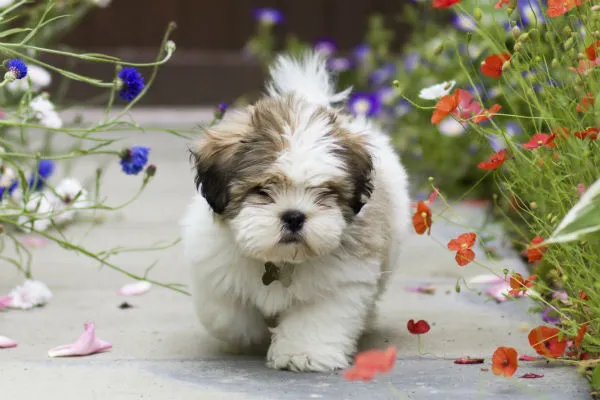 Lhasa Apso with a long, flowing, golden coat looking directly at the camera
Lhasa Apso with a long, flowing, golden coat looking directly at the camera
This small dog breed from Tibet makes an excellent companion. Calm yet playful, the Lhasa Apso enjoys brisk walks and relaxing in their owner’s lap. Lhasa Apsos don’t shed, but their coats require maintenance. Many owners keep their Lhasa Apsos clipped in a “puppy cut” to avoid daily grooming and brushing of their long hair.
Miniature Schnauzer
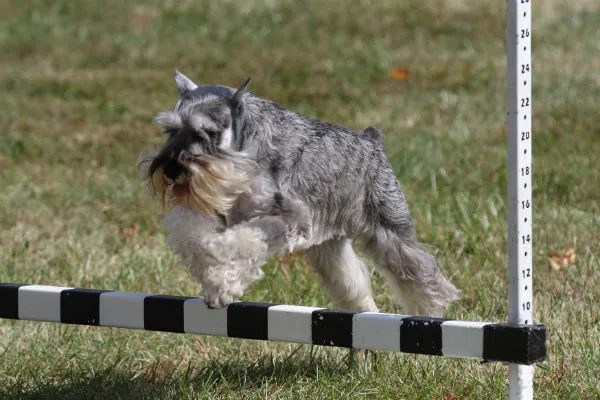 Miniature Schnauzer with a salt and pepper coat and characteristic beard
Miniature Schnauzer with a salt and pepper coat and characteristic beard
The Miniature Schnauzer is a smart, trainable, and cheerful little dog that strongly resembles his Standard Schnauzer cousin. This Terrier sheds very little, and their adaptability makes them at home in the city or the country. Weekly brushing and regular grooming will keep them looking their best. Miniature Schnauzers are energetic and require regular exercise to prevent boredom.
Poodle (Miniature and Toy)
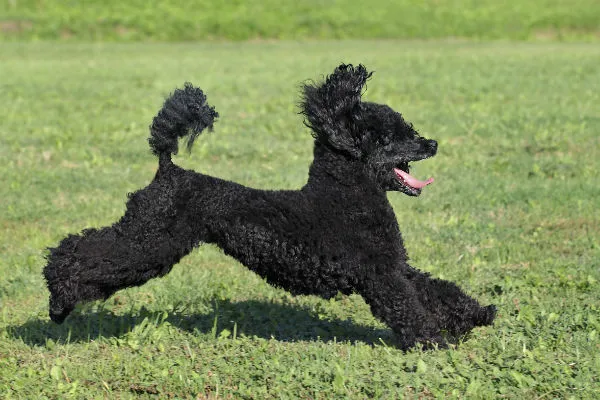 Poodle (standard) with a curly, black coat looking elegant
Poodle (standard) with a curly, black coat looking elegant
When people think of small dogs that don’t shed, Poodles often come to mind. Poodles are non-shedding and hypoallergenic. Miniature and Toy Poodles offer these qualities in petite, intelligent packages. All Poodles are highly intelligent, making them easy to train. Their hair does require regular grooming to prevent mats and tangles. If you are looking for small dogs that dont shed and stay small, then this might be a good fit.
Scottish Terrier
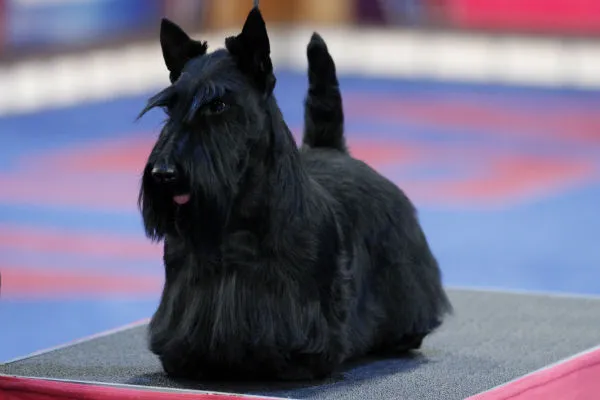 Scottish Terrier with a black, wiry coat standing proudly
Scottish Terrier with a black, wiry coat standing proudly
The Scottish Terrier, or Scottie, is a Terrier breed known for its boldness, confidence, and big personality. The wiry, weather-resistant coat sheds very little, although they do need regular brushing, grooming, and the occasional hand-stripping to keep their coats healthy and to maintain the breed outline. Scotties are clever and independent dogs with strong prey drives, which means owners must take care around smaller animals.
Shih Tzu
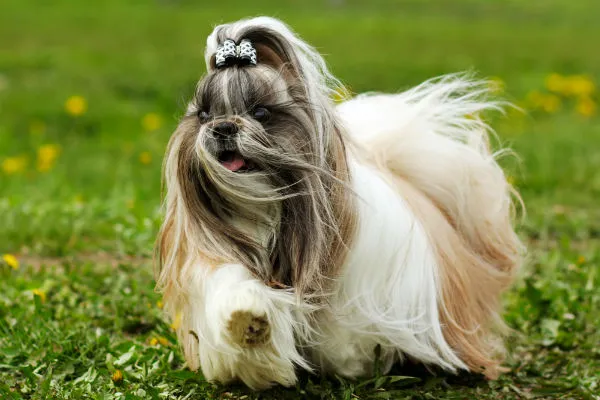 Shih Tzu with a long, flowing, multi-colored coat looking directly at the camera
Shih Tzu with a long, flowing, multi-colored coat looking directly at the camera
The Shih Tzu is another breed with a long pedigree. The favored house pet of the Tang Dynasty, these “little lions dogs” come in a variety of colors and patterns. Their long, silky hair is very low-shedding and looks exceptionally regal when brushed out. This Toy breed is sturdy and lively, with a carriage often described as arrogant. Shih Tzus were bred to be house pets, and their gentle, trusting nature makes them exceptional companions.
West Highland White Terrier
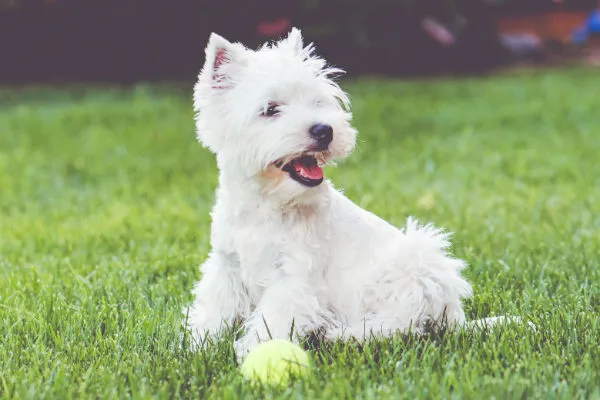 West Highland White Terrier with a white, wiry coat standing alert
West Highland White Terrier with a white, wiry coat standing alert
The coarse, white hair of the West Highland White Terrier, affectionately called Westies, sheds very little. This sturdy little dog is intelligent, loyal, happy, and highly entertaining. They are curious dogs with moderate energy levels and an independent streak common among all Terriers, that can make training a challenge at times.
Xoloitzcuintli
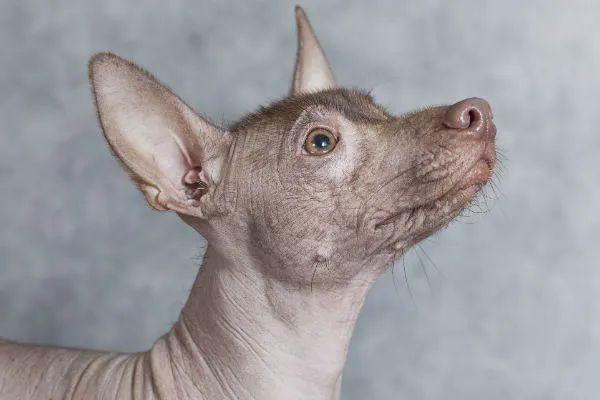 Xoloitzcuintli (hairless variety) with smooth, dark skin and some hair on its head
Xoloitzcuintli (hairless variety) with smooth, dark skin and some hair on its head
Also known as the Mexican Hairless, the Xoloitzcuintli is an ancient and rare breed of dog that can be hairless or coated. Hairless varieties retain a small amount of hair on their heads, and the coated variety has a very short, fine coat that sheds minimally. As with any hairless breed, the Xolo needs extra attention when it comes to their skin to protect them from the elements. Xolos make attentive watchdogs and affectionate companions.
Yorkshire Terrier
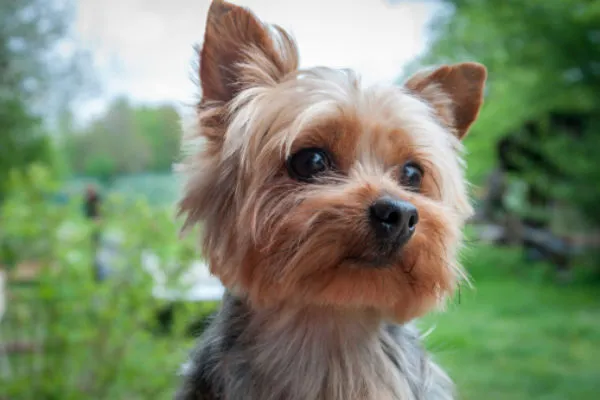 Yorkshire Terrier with a long, silky, tan and blue coat looking to the side
Yorkshire Terrier with a long, silky, tan and blue coat looking to the side
Sprightly, tomboyish, and affectionate, the Yorkshire Terrier, often called the Yorkie, is a Toy breed full of personality. These spunky lap dogs are popular for good reason. Yorkshire Terriers do not shed, and their silky coats are beautiful when brushed out daily. Yorkies have working-class roots, hunting rats in English clothing mills, but today they are just as happy to sit on their owner’s lap.
Other Small Dog Breeds That Don’t Shed
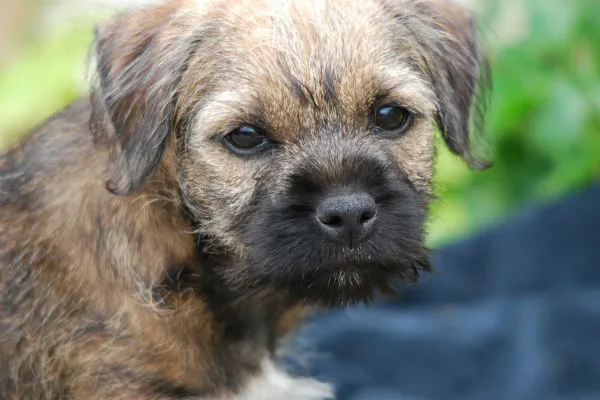 Border Terrier with a wiry, tan coat looking inquisitive
Border Terrier with a wiry, tan coat looking inquisitive
The Terrier group is full of small dogs that don’t shed or shed minimally. Wiry- and coarse-haired Terriers shed less than other breeds, making Terriers ideal small dogs for people who don’t enjoy excessive shedding. Some other non- or low-shedding Terrier breeds include: Border Terrier, Cairn Terrier, and Dandie Dinmont Terrier.
Choosing a small dog that doesn’t shed can be a great way to enjoy companionship without the constant cleanup. Remember that even non-shedding breeds require regular grooming. Research different breeds to find the one that best suits your lifestyle, and always get your dog from a reputable breeder, feed them a high-quality diet, and take them to the vet for regular checkups.
